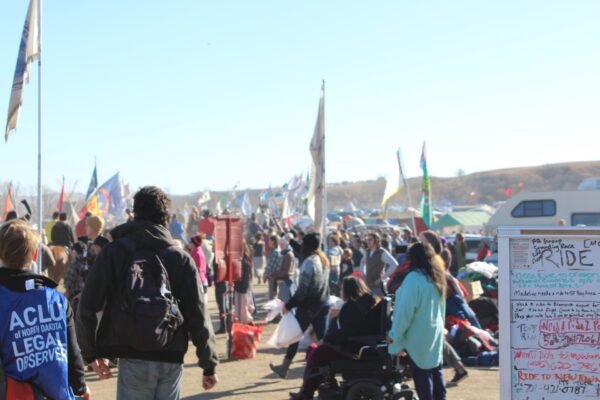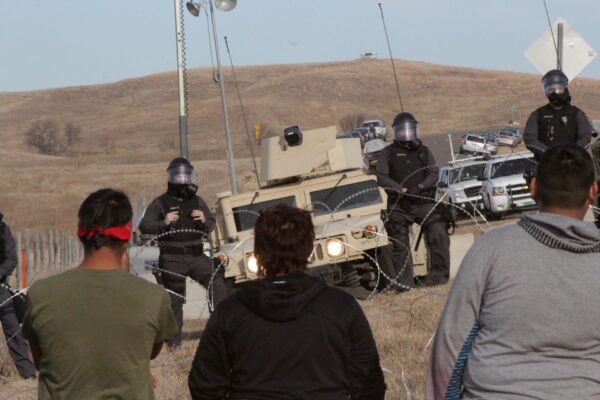Montana agencies are withholding public documents possible about Keystone XL pipeline protest preparations.
Today, the ACLU of Montana, Western Environmental Law Center, and the Bahr Law Offices challenged two Montana state agencies’ refusal to release public records relating to the Keystone XL Pipeline. The documents in question pertain to the government’s plans in response to protests. The ACLU is concerned that such plans may include spying on protesters, suppressing constitutionally protected free speech rights, and responding with militarized police tactics.
The complaint describes how Montana Disaster and Emergency Services and the Montana Division of Criminal Investigation violated the public records law by failing to release documents to the ACLU of Montana following a request in February 2018. The agencies have provided some documents, but they were so heavily redacted they were unintelligible. Furthermore, the agencies unlawfully imposed “gag orders” on the documents they did provide, which prohibits the ACLU of Montana from sharing any of the information in those documents with the public.
“The state’s dubious and incomplete response to a basic request for information is troubling,” said Lillian Alvernaz, Indigenous Justice Legal Fellow with the ACLU of Montana. “Indigenous groups, environmental activists, and other people opposed to the KXL Pipeline have a right to protest without being spied on by the government and without being met with a militarized and violent response. The government’s interest should be in protecting these rights – not violating them.”
The ACLU filed several public records requests in early 2018 after learning that state and federal agencies were actively preparing to respond to protesters. The organizations were concerned that the rights of protestors might be violated, especially after the government response to peaceful protests against the Dakota Access Pipeline in 2016, where law enforcement agencies used excessive force, unlawfully spied on protestors, and used intimidation and military tactics – including tear gas, rubber bullets, concussion grenades, and water cannons – against people exercising their First Amendment right to protest.
In 2018, the ACLU successfully sued federal agencies who also refused to hand over documents. As a result of the federal lawsuit, the Bureau of Land Management and U.S. Army Corps of Engineers were forced to turn over additional documents related to their preparations for anticipated protestors. The federal documents obtained by the ACLU show that federal, state, local, and private companies have already discussed ways to quash protest activities concerning Keystone XL. For example, the ACLU learned that the federal government may close federal property around the Fort Peck Dam to impede protests.
“After witnessing the nightmare protestors at Standing Rock endured at the hands of government agencies working in concert with private pipeline companies, we must ensure the people’s right to know what the government has in store leading up to or in response to peaceful protests,” said Shiloh Hernandez, staff attorney with the Western Environmental Law Center.
The parties to the lawsuit want the Montana agencies to immediately release the requested records and lift the gag order so the documents can be made public, as they should have been from the beginning.
President Trump approved construction of the KXL Pipeline as one of his first acts in office in March 2017. Though legal challenges brought by Indigenous tribes and environmental groups are pending, some preparation for construction has already begun.
Contact:
Brooke Swaney, ACLU of Montana; swaneyb@aclumontana.org



